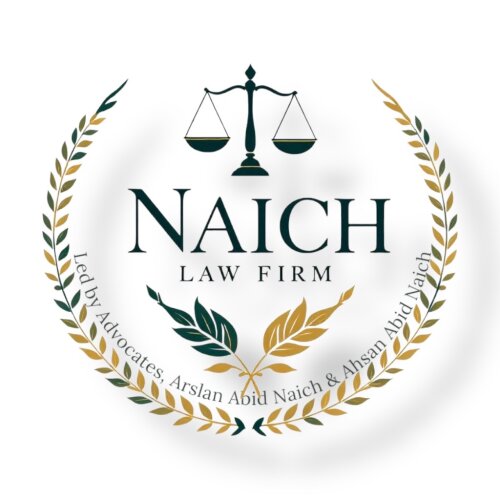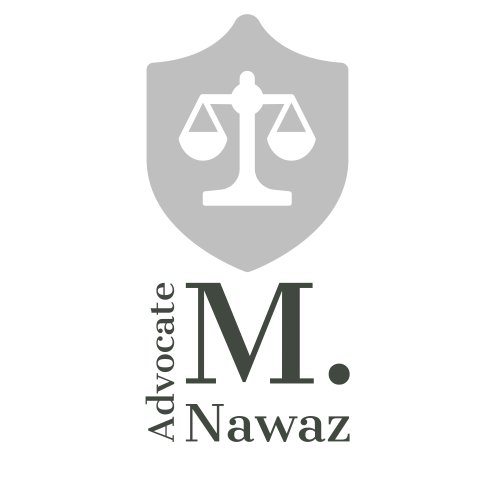Best Wrongful Death Lawyers in Karachi
Share your needs with us, get contacted by law firms.
Free. Takes 2 min.
List of the best lawyers in Karachi, Pakistan
About Wrongful Death Law in Karachi, Pakistan
Wrongful death law in Karachi, Pakistan, is designed to provide justice and compensation to the families of individuals who have died due to the negligence or misconduct of another party. It involves civil suits filed by the heirs of the deceased, seeking compensation for damages such as loss of financial support, companionship, and funeral expenses. These cases can arise from various situations, such as medical malpractice, automobile accidents, and workplace incidents.
Why You May Need a Lawyer
Individuals may require legal assistance in wrongful death cases for multiple reasons. Navigating the legal system can be complex, and an experienced lawyer can help families understand their rights and options. Lawyers can aid in collecting evidence, negotiating settlements, and representing clients in court. Another common situation is dealing with insurance companies, which may attempt to minimize payouts. A lawyer can advocate on behalf of the bereaved to secure fair compensation. They can also offer valuable support and clarity during a challenging time, ensuring that all legal requirements are met in pursuing a wrongful death claim.
Local Laws Overview
In Karachi, Pakistan, wrongful death claims often fall under tort law. An essential aspect of these cases is proving negligence or misconduct by the defendant, which directly led to the death. The statutes outline who may be eligible to file a wrongful death lawsuit, typically close relatives like spouses, parents, or children. There is usually a time limit, known as a limitation period, within which a wrongful death claim must be filed, although this can vary based on specific circumstances. Given the complexities of the judicial system and potential cultural sensitivities, understanding local legal frameworks and procedures is crucial.
Frequently Asked Questions
What constitutes a wrongful death under Pakistani law?
A wrongful death occurs when a person dies due to the legal fault of another individual or entity, including negligence, reckless conduct, or intentional harm.
Who can file a wrongful death lawsuit in Karachi?
Typically, immediate family members such as spouses, children, or parents of the deceased can file a wrongful death lawsuit.
What kind of damages can be claimed?
Damages may include medical and funeral costs, loss of income and support, pain and suffering, and loss of companionship.
How long do I have to file a wrongful death claim?
The timeframe, known as the statute of limitations, can vary. Therefore, it is essential to consult with a lawyer as soon as possible to avoid missing critical deadlines.
How can fault be proven in a wrongful death case?
Fault must be proven by demonstrating that the defendant's actions directly caused the death, which may involve evidence gathering, witness statements, and expert testimony.
Is there a difference between criminal and civil wrongful death cases?
Yes, a wrongful death lawsuit is a civil case, primarily seeking monetary compensation, while criminal cases are pursued by the state to punish the wrongdoer.
Can a wrongful death case be settled out of court?
Yes, many wrongful death cases are settled out of court through negotiations between the parties involved, with assistance from their legal representatives.
What is the role of an insurance company in a wrongful death case?
Insurance companies might be involved in payout negotiations if the defendant has coverage. They may attempt to settle claims for the lowest possible amount, making legal representation critical.
Can I handle a wrongful death case without a lawyer?
While not legally required, facing a wrongful death case without a lawyer can be challenging due to legal complexities, the need for evidence, and negotiations with opposing parties.
Does a wrongful death settlement affect an existing criminal case?
No, wrongful death settlements in civil court are separate from criminal proceedings and do not influence the outcome of a criminal case.
Additional Resources
Several resources are available for individuals seeking more information or assistance regarding wrongful death cases in Karachi. The Sindh High Court provides publications and legal help for civil matters. The Pakistan Bar Council can refer you to qualified lawyers specializing in wrongful death law. Additionally, non-governmental organizations offer legal aid to those in need.
Next Steps
If you believe you need legal assistance for a wrongful death case, it is crucial to act promptly. Begin by consulting with a qualified lawyer specializing in wrongful death laws in Karachi to discuss your case. Gather relevant documents and evidence related to the incident. Keep a detailed record of any interactions with involved parties and ensure timely filing of claims to observe statutory deadlines. By taking these steps, you increase the likelihood of a favorable outcome in your wrongful death claim.
Lawzana helps you find the best lawyers and law firms in Karachi through a curated and pre-screened list of qualified legal professionals. Our platform offers rankings and detailed profiles of attorneys and law firms, allowing you to compare based on practice areas, including Wrongful Death, experience, and client feedback.
Each profile includes a description of the firm's areas of practice, client reviews, team members and partners, year of establishment, spoken languages, office locations, contact information, social media presence, and any published articles or resources. Most firms on our platform speak English and are experienced in both local and international legal matters.
Get a quote from top-rated law firms in Karachi, Pakistan — quickly, securely, and without unnecessary hassle.
Disclaimer:
The information provided on this page is for general informational purposes only and does not constitute legal advice. While we strive to ensure the accuracy and relevance of the content, legal information may change over time, and interpretations of the law can vary. You should always consult with a qualified legal professional for advice specific to your situation.
We disclaim all liability for actions taken or not taken based on the content of this page. If you believe any information is incorrect or outdated, please contact us, and we will review and update it where appropriate.














